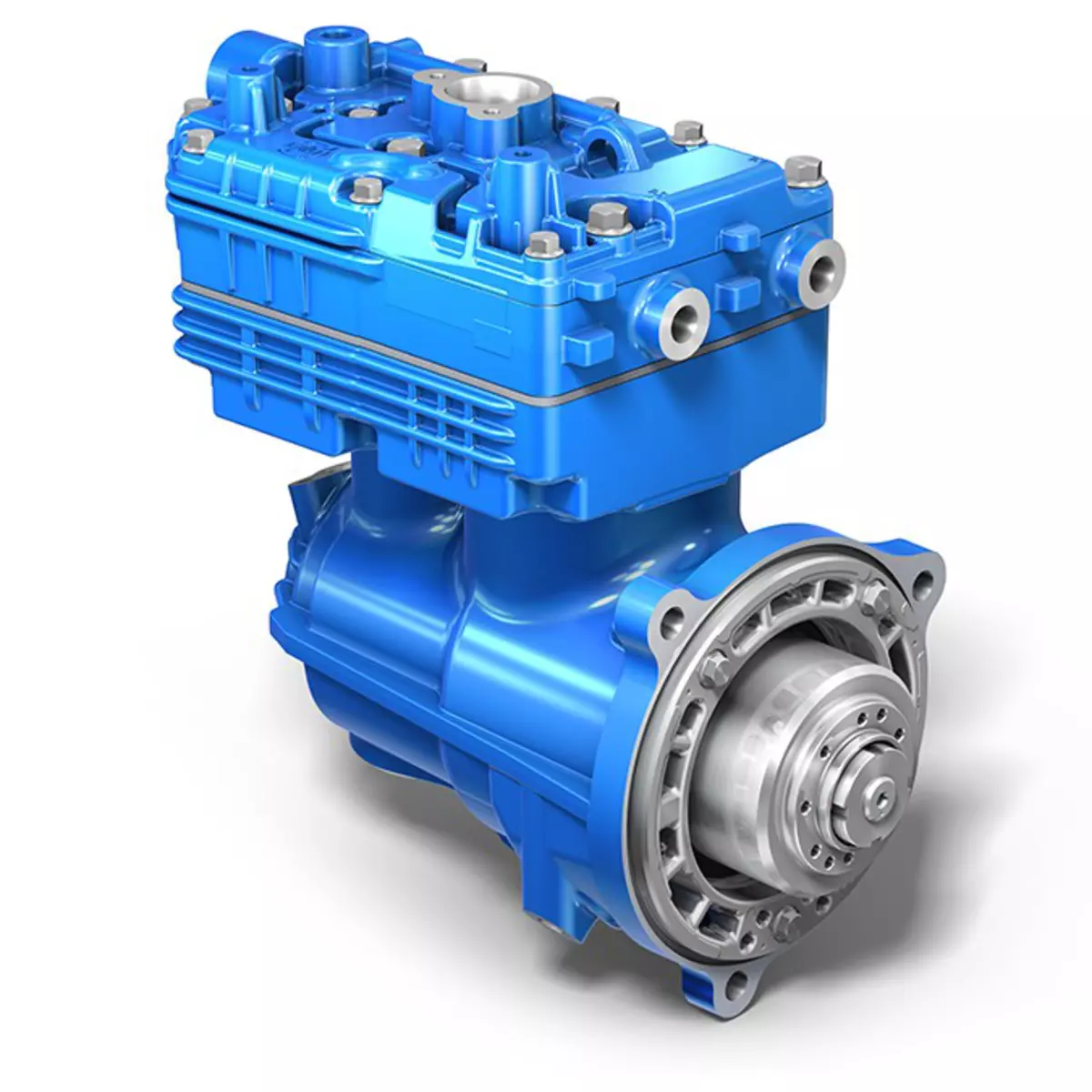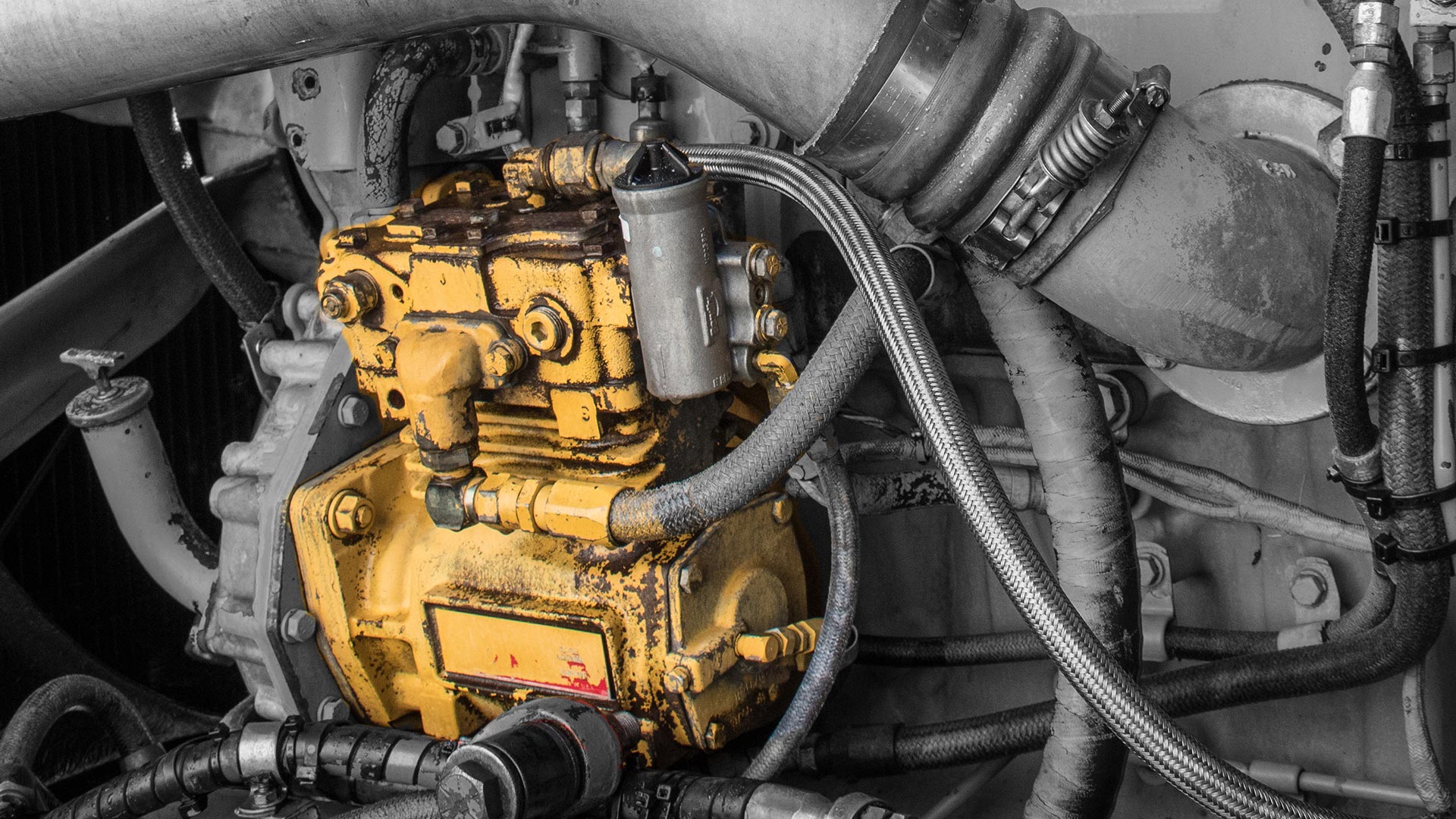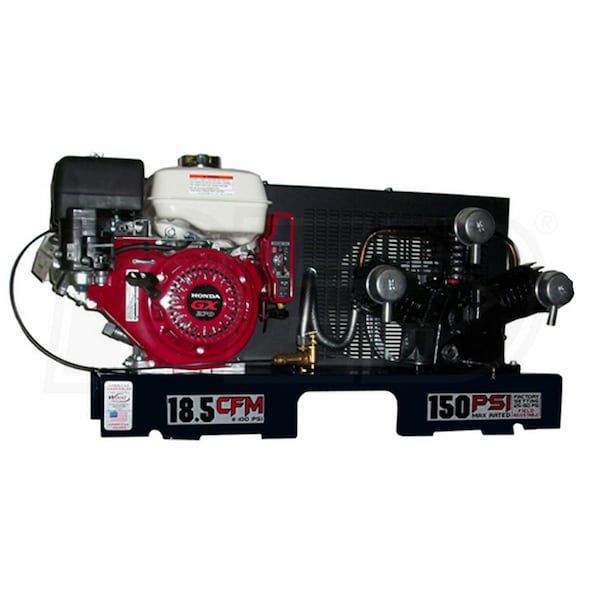A lorry air compressor is a device that compresses air for various applications in heavy-duty vehicles. It powers tools, inflates tires, and operates pneumatic systems efficiently.
Lorry air compressors play a crucial role in the functioning of commercial trucks and heavy machinery. They provide the necessary air pressure to operate essential components like brakes and suspension systems. These compressors come in various types, including reciprocating and rotary screw models, each suited for specific tasks.
Proper maintenance ensures optimal performance and longevity, reducing downtime during operations. Understanding the features and benefits of lorry air compressors can help fleet operators make informed decisions, enhancing productivity and safety on the road. Investing in a high-quality air compressor can significantly impact a lorry’s efficiency and reliability in demanding environments.

Credit: voith.com
Introduction To Lorry Air Compressor Maintenance
Maintaining your lorry air compressor is crucial. Regular care ensures it runs smoothly. Proper maintenance can prevent costly repairs. This section covers essential maintenance tips and their benefits.
Importance Of Regular Check-ups
Regular check-ups keep your lorry air compressor in top shape. They help identify issues early. Here are key reasons for regular maintenance:
- Prolongs Lifespan: Regular care extends equipment life.
- Improves Performance: Well-maintained compressors perform better.
- Reduces Downtime: Early problem detection minimizes breakdowns.
- Saves Money: Preventive maintenance is cheaper than repairs.
Impact On Safety And Efficiency
Neglecting air compressor maintenance can lead to safety hazards. Here are some impacts on safety and efficiency:
| Impact | Effect |
|---|---|
| Reduced Efficiency | Increased energy consumption and operational costs. |
| Safety Hazards | Risk of leaks or explosions due to wear and tear. |
| Unreliable Performance | Inconsistent air supply affects machinery operation. |
Routine maintenance enhances safety and ensures your compressor runs efficiently. Regular checks help avoid serious accidents and save costs.
Identifying Common Air Compressor Issues
Air compressors are essential for many tasks. They power tools and equipment. Understanding common issues helps maintain efficiency. Let’s explore the most frequent problems.
Leaks And Pressure Drops
Leaks can cause significant pressure drops in your compressor. Identifying these leaks early is crucial. Here are some common signs:
- Reduced airflow from the nozzle.
- Increased energy bills.
- Visible air escaping from hoses or fittings.
To check for leaks:
- Turn on the compressor.
- Apply soapy water to hoses and connections.
- Look for bubbles forming, indicating leaks.
Fixing leaks quickly can restore performance and save energy.
Overheating Problems
Overheating can damage your air compressor. It often occurs due to:
| Cause | Signs |
|---|---|
| Insufficient ventilation | Hot exterior casing |
| Low oil levels | Frequent automatic shut-offs |
| Dirty filters | Unusual shutdowns |
Maintain proper airflow. Regularly check oil levels. Clean or replace filters as needed.
Unusual Noises
Strange noises can indicate problems. Listen for these common sounds:
- Grinding: Indicates worn bearings.
- Hissing: Suggests air leaks.
- Banging: Implies loose parts.
Address these noises promptly. Ignoring them can lead to severe damage.
Routine Inspection Checklist
Regular inspections of your lorry air compressor ensure smooth operation. A routine checklist helps maintain performance and extend lifespan. This section covers essential components to inspect regularly.
Air Filter Examination
The air filter keeps dirt and debris out of the compressor. Check the air filter monthly.
- Look for dirt buildup.
- Replace if clogged.
- Ensure proper airflow.
A clean air filter improves efficiency. It reduces wear on internal parts.
Belt Tension And Alignment
Proper belt tension is crucial for compressor performance. Loose or misaligned belts can cause damage.
| Action | Frequency |
|---|---|
| Check belt tension | Every two weeks |
| Inspect alignment | Monthly |
Adjust tension as needed. Misalignment can lead to premature wear.
Oil Level And Quality
Oil lubricates moving parts in the compressor. Regularly check the oil level and its quality.
- Check oil level weekly.
- Look for contaminants.
- Change oil every 500 hours.
Use high-quality oil for best results. Clean oil extends component life.

Credit: www.roadtrains.com.au
Cleaning Techniques For Optimal Performance
Regular cleaning of your Lorry Air Compressor ensures it runs smoothly. Proper maintenance prevents breakdowns and extends its lifespan. Here are effective cleaning techniques to enhance performance.
Dust And Debris Removal
Dust and debris can clog the air compressor. Follow these steps for effective removal:
- Turn off the compressor and unplug it.
- Use a soft brush or vacuum to remove dust.
- Pay special attention to air filters and vents.
- Inspect for any buildup around the motor.
- Wipe surfaces with a damp cloth.
Regularly check for debris to maintain airflow. This keeps the compressor efficient and reduces wear.
Cooler Cleaning And Maintenance
A clean cooler is vital for optimal air compressor function. Follow these maintenance tips:
- Inspect the cooler for dirt and grime.
- Use compressed air to blow out loose particles.
- Wash the cooler with a mild detergent.
- Rinse thoroughly to remove all soap residue.
- Dry completely before reassembling.
A clean cooler helps the compressor operate efficiently. Regular maintenance reduces overheating risks and improves performance.
Lubrication Practices For Longevity
Proper lubrication is crucial for the longevity of a lorry air compressor. It reduces friction, prevents wear, and ensures smooth operation. Implementing effective lubrication practices protects your investment and enhances performance.
Choosing The Right Lubricant
Selecting the correct lubricant is essential. It affects efficiency and lifespan. Here are key factors to consider:
- Viscosity: Choose a lubricant with suitable thickness.
- Type: Use synthetic oils for better heat resistance.
- Compatibility: Ensure it works well with your compressor materials.
Refer to the manufacturer’s recommendations. This ensures optimal performance and prevents damage.
Lubrication Schedule
Establishing a lubrication schedule helps maintain your compressor. Regular maintenance prevents breakdowns and costly repairs. Follow these guidelines:
- Check oil levels weekly.
- Change the oil every 500 hours of operation.
- Inspect filters monthly and replace as needed.
- Use a logbook to track maintenance activities.
Creating a consistent schedule is vital for long-term performance. Keep your lorry air compressor running smoothly.
Addressing Moisture Issues
Moisture can cause serious problems for lorry air compressors. It leads to rust, corrosion, and decreased efficiency. Addressing moisture issues is essential for longevity and performance.
Draining The Air Tank
Regularly draining the air tank is crucial. This helps remove accumulated moisture. Follow these simple steps:
- Locate the drain valve at the bottom of the tank.
- Ensure the compressor is off and cool.
- Open the drain valve slowly.
- Let the moisture drain out completely.
- Close the valve tightly.
Perform this task daily or weekly. It depends on usage. Keeping the air tank dry extends its life.
Using Aftercoolers And Dryers
Aftercoolers and dryers are effective in moisture removal. They cool the compressed air, allowing moisture to condense. Here’s how they help:
| Device | Function | Benefits |
|---|---|---|
| Aftercooler | Cools the compressed air | Reduces moisture before storage |
| Desiccant Dryer | Absorbs moisture from air | Produces dry air for sensitive tools |
| Refrigerated Dryer | Chills air to remove moisture | Maintains consistent air quality |
Investing in these devices is wise. They ensure dry air flow. This protects tools and improves performance.
Replacing Worn Components
Maintaining your lorry air compressor is crucial for optimal performance. Replacing worn components prevents breakdowns and extends the life of your equipment. Focus on three key areas: seals and gaskets, valves and pistons, and hoses and connectors.
Seals And Gaskets
Seals and gaskets play a vital role in your air compressor. They prevent air leaks and maintain pressure. Over time, these parts wear out and lose effectiveness. Here’s how to check and replace them:
- Inspect for cracks or damage.
- Remove old seals with care.
- Clean the surface before installing new ones.
- Use high-quality replacement parts.
Valves And Pistons
Valves and pistons are essential for proper airflow. Worn valves can lead to poor performance. Pistons that are not functioning well can cause air leaks. Follow these steps for replacement:
- Open the compressor and access the valves.
- Check for wear and tear.
- Replace any damaged parts with new ones.
- Ensure everything is tightly secured.
Hoses And Connectors
Hoses and connectors transport air throughout the system. Damaged hoses can lead to air loss. Inspect them regularly for signs of wear. Here’s how to maintain them:
| Action | Description |
|---|---|
| Check for Leaks | Look for air escaping from hoses or connections. |
| Replace Damaged Hoses | Cut out the damaged section and install a new hose. |
| Tighten Connectors | Ensure all connectors are secure and leak-free. |
Regularly replacing worn components ensures your lorry air compressor runs smoothly. Take proactive steps to maintain these critical parts.
Professional Servicing And Repairs
Regular maintenance of your Lorry Air Compressor is essential. Professional servicing ensures optimal performance. It prevents major breakdowns and extends the life of your equipment.
When To Seek Expert Assistance
Identifying the right time for professional help is crucial. Look for these signs:
- Strange noises during operation.
- Unusual vibrations or shaking.
- Loss of pressure in the system.
- Frequent overheating issues.
- Visible leaks or damage.
Addressing these issues early can save time and money. Expert technicians can diagnose problems quickly. They ensure that your lorry air compressor runs smoothly again.
Benefits Of Warranty And Service Contracts
Investing in a warranty or service contract offers several advantages:
| Benefit | Description |
|---|---|
| Cost Savings | Reduces repair costs during warranty period. |
| Regular Maintenance | Scheduled check-ups prevent unexpected failures. |
| Expert Care | Access to certified technicians for repairs. |
| Peace of Mind | Confidence in reliable performance. |
Choosing a warranty or service contract is smart. It protects your investment. Regular servicing keeps your Lorry Air Compressor running efficiently.
Record Keeping For Maintenance History
Effective record keeping is crucial for the longevity of a lorry air compressor. It helps track maintenance tasks and service history. Proper records ensure timely upkeep and enhance performance. A well-maintained air compressor saves time and money.
Logging Service Dates
Keeping a log of service dates is vital. It allows you to track when maintenance was performed. Use a simple table to record dates and services.
| Date | Service Performed | Technician |
|---|---|---|
| 2023-01-15 | Oil Change | John Doe |
| 2023-03-10 | Filter Replacement | Jane Smith |
| 2023-06-05 | Full Inspection | Mike Johnson |
Update this log regularly. Include all maintenance tasks, no matter how small. This helps maintain a clear history of your air compressor’s care.
Monitoring Performance Trends
Monitoring performance trends helps identify issues early. Regularly check key performance indicators (KPIs). Track metrics like pressure, efficiency, and noise levels.
- Pressure: Ensure it meets the manufacturer’s specs.
- Efficiency: Compare energy usage over time.
- Noise Levels: Listen for unusual sounds.
Use graphs to visualize trends over time. This makes it easier to spot problems. A consistent pattern indicates normal operation. Sudden changes may signal a need for maintenance.
Keeping thorough records allows for informed decisions. It helps extend the life of your lorry air compressor.

Credit: www.aircompressorsdirect.com
Best Practices For Ensuring Compliance
Ensuring compliance with regulations is vital for lorry air compressors. It enhances safety and reduces environmental impact. Follow these best practices to meet standards effectively.
Regulatory Standards For Air Compressors
Regulatory standards guide the safe use of air compressors. Different regions have unique regulations. Key standards include:
- OSHA: Occupational Safety and Health Administration guidelines.
- EPA: Environmental Protection Agency regulations for emissions.
- ISO: International Organization for Standardization norms for quality and safety.
Regular inspections ensure compliance with these standards. Schedule maintenance checks often. Keep documentation organized for easy access.
Environmental Considerations
Environmental impact is crucial for compliance. Focus on reducing emissions and noise levels. Here are some practices to consider:
| Practice | Description |
|---|---|
| Routine Maintenance | Regular checks reduce leaks and emissions. |
| Energy Efficiency | Use energy-efficient models to lower power consumption. |
| Noise Reduction | Implement soundproofing measures to minimize noise pollution. |
Educate staff about environmental practices. Encourage them to report issues promptly. Compliance leads to a healthier workplace and environment.
Frequently Asked Questions
What Is A Lorry Air Compressor?
A lorry air compressor is a device that compresses air for various applications. It’s commonly used in lorries for powering pneumatic tools and inflating tires. These compressors enhance efficiency and can be powered by the vehicle’s engine or an external power source.
They are essential for heavy-duty tasks.
How Does A Lorry Air Compressor Work?
A lorry air compressor works by drawing in air and compressing it using a piston or rotary mechanism. The compressed air is stored in a tank for later use. When needed, the air is released through a hose to power tools or inflate tires, providing a reliable and efficient solution.
What Are The Benefits Of Using A Lorry Air Compressor?
The benefits of using a lorry air compressor include increased efficiency and versatility. They allow for easy operation of pneumatic tools and quick tire inflation. Additionally, they save time and effort on various tasks, making them a valuable asset for lorry operators and maintenance teams.
How To Maintain A Lorry Air Compressor?
To maintain a lorry air compressor, regularly check and change the oil, clean filters, and inspect hoses for wear. It’s also important to drain moisture from the tank to prevent rust. Regular maintenance ensures optimal performance and extends the lifespan of the compressor, making it reliable for use.
Conclusion
Choosing the right lorry air compressor can significantly enhance your efficiency. It’s essential to consider factors like power, size, and portability. Investing in a quality compressor ensures reliable performance for your hauling needs. With the right choice, you’ll experience improved productivity and durability on the road.
Don’t overlook this vital tool for your lorry.

